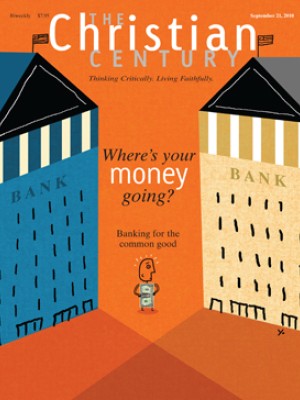Obama’s religion: A hard question for Americans
Could President Obama have avoided incurring the mistaken views of a surprising number of Americans who say in surveys that they think he is a Muslim? How to account for others polled saying they do not know what faith he follows?
Public figures in religion and politics promptly affirmed that he is a Christian—perhaps cutting short in mid-August another episode in the U.S. culture wars. Obama had announced months earlier that he would be in touch with pastors but wanted to avoid joining a church and disrupting services by his family's presence.
White House deputy press secretary Bill Burton, speaking August 19 aboard Air Force One about the degree of public misperception, said: "You could always play the 'would-of, could-of, should-of,' but the president's top priority here isn't making sure that Americans know what a devout Christian he is, it's making sure that we're getting the economy on track and we're creating jobs in this country."
Read our latest issue or browse back issues.
The stir arose when two polls announced almost simultaneously that a surprising number of Americans erroneously believe that President Obama is a Muslim.
- Asked in a Time magazine poll whether the president is a Muslim or a Christian, 24 percent of respondents said Muslim and 47 percent said Christian.
- A separate Pew poll released August 19 found that 18 percent of Americans think President Obama is a Muslim. A full 43 percent—across lines of race, political party and religion—don't know what faith he follows.
Perhaps most strikingly, the number of Americans who believe Obama is a Muslim has increased over the last 18 months, while fewer believe that he's a Christian. The percentage of Americans who could identify Obama as a Christian has dropped from 48 percent to 34 percent, according to the Pew poll.
Experts pointed to a number of possible explanations, but one quickly rose to the top: the candidate who discovered Christian faith in a Chicago black church has rarely been seen leaving the White House for Sunday services.
"Possibly this reflects the degree to which this president is less public about his religion, especially than his predecessor was," said Alan Cooperman, associate director for research at the Pew Forum on Religion & Public Life.
Whatever the reason, White House spokesperson Shin Inouye described Obama on August 19 as a man of "strong Christian faith," even though "he doesn't wear it on his sleeve."
More than 70 Christian leaders later signed a statement agreeing, often from personal experience, that Obama "has been unwavering in confessing Christ as Lord and has spoken often about the importance of his Christian faith."
The nonalphabetical list spanning the theological spectrum began with evangelicals such as megachurch pastor-author Bishop T. D. Jakes, Hispanic leader Sam Rodriguez, Florida megachurch pastor Joel Hunter and religious scholars Stephen Monsma of Calvin College and Miroslav Volf of Yale Divinity School.
Shaun Casey, an ethics professor at Wesley Theological Seminary and a former adviser to the Obama campaign, said the poll findings indicate not only a "communications problem" in the White House but also continuing opposition to the president.
Casey noted the Pew poll's finding that Republicans showed the most marked increase in believing Obama to be a Muslim. "It shows that people who are not political supporters are the ones who are willing to offer up their opinion he is a Muslim," Casey said.
John Green, director of the Bliss Institute of Applied Politics at the University of Akron, said the Pew poll findings refute the "reasonable expectation" that as Americans come to know Obama better, they would have a more accurate picture of his faith. "The fact that we don't see a lot of pictures of him attending a house of worship . . . might have some kind of effect," said Green, who worked on the Pew study.
As president, Obama has addressed his faith occasionally, telling how he and other Christians "glory in the promise of redemption in the resurrection" at an Easter prayer breakfast last April, or telling the National Prayer Breakfast in February, "I assure you I'm praying a lot these days."
Obama had said he planned to visit "a number of different churches" in Washington. But so far the congregations have been few, among them St. John's Episcopal Church near the White House, two historically black Baptist congregations in Washington and the Washington National Cathedral for an inauguration prayer service.
The Pew poll of some 3,000 respondents was taken between July 21 and August 5, before the president waded into the controversy over a proposed Islamic center near Ground Zero.
After telling guests at a Ramadan dinner at the White House that the U.S. has an "unshakable" commitment to religious freedom, the next day he said he would not "comment on the wisdom" of placing the Islamic center near the site of the 9/11 attacks. The Time poll of some 1,000 adults was taken just after he made those comments.
Observers said the findings may have less to do with Obama and more to do with opponents who skillfully use the media—especially the Internet—to spread misinformation about the president.
Sally Steenland, a senior policy adviser to the Faith and Progressive Policy Initiative at the Center for American Progress think tank, said it's important for people of all parties to be responsible about telling the truth. "Do any of us want to live in a country, or do we want to be voting, on the basis of made-up reality?" she said. "This is a pollution of democracy." —RNS



